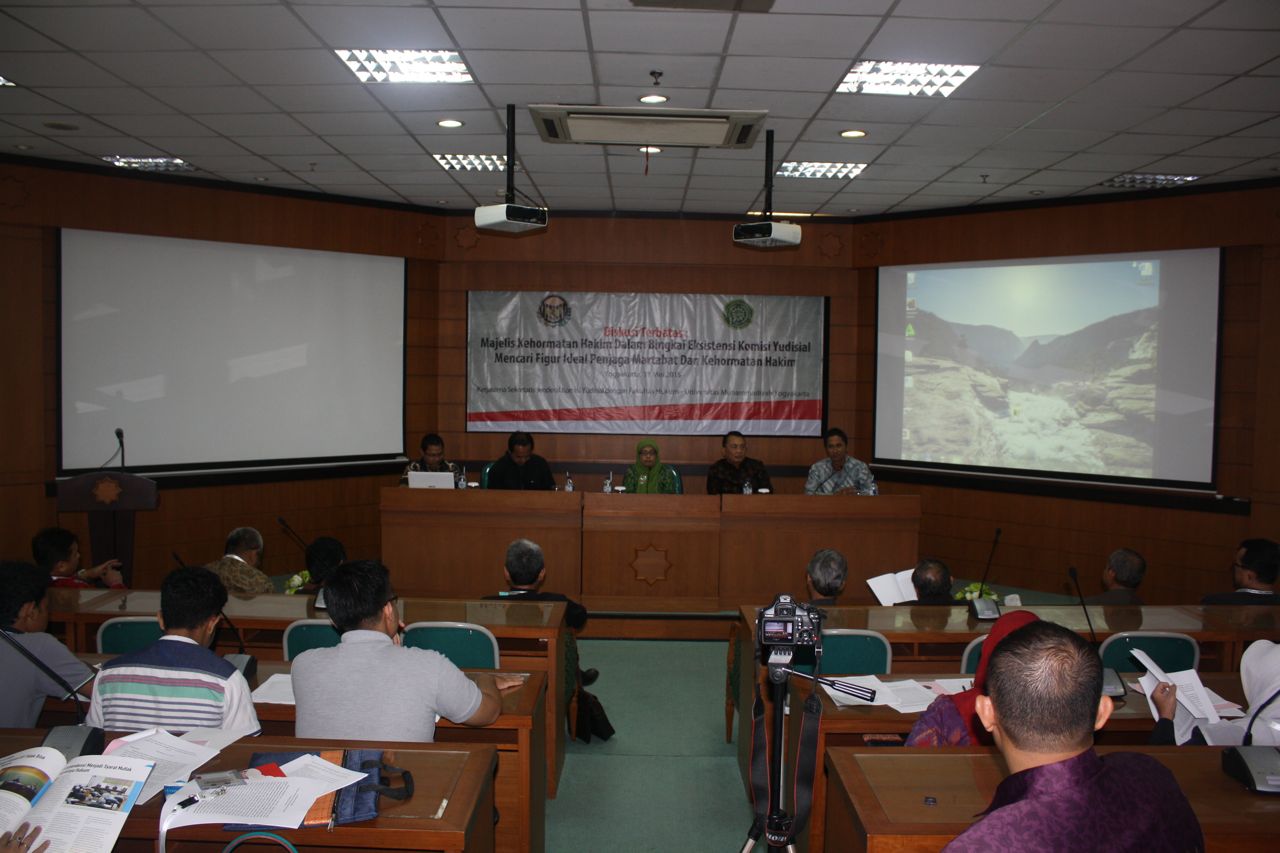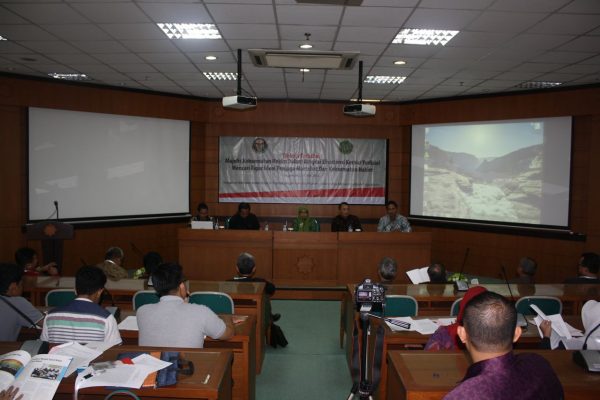The Judicial Commission (KY) emerged in Indonesia owing to public distrust to system of government, law, and justice in Indonesia. Public argued that justice system in Indonesia should be supervised. According to UUD 1945 article 24B, KY is an independent state agency that authorizes to propose candidate of the Supreme Court and to maintain and ensure the honor, dignity, and behavior of judges. “It means that the main role of KY is to maintain and ensure the honor, dignity, and behavior of judges,” elucidated Totok Winarto, S.H., M, an expert of Judicial Commission, Republic of Indonesia. He uttered the statement when being a speaker in an event of “Restricted Discussion: Court Honor Council within the Judicial Commission (Seeking Ideal Figure of Guard of Judges’ Honor and Dignity). The discussion was conducted on Monday (11/5) in Building of A.R. Fachruddin A, Floor 5, Universitas Muhammadiyah Yogyakrta (UMY).
Totok continued that the existence of KY was also misused by the ones who had power. Thus, KY attempted to embody check and balances which function to return judiciary authority that all institutes ought to monitor one another. “To undertake all of them, the existence of the Judicial Commission members and Court Honor Council (MKH) could be inseparable since both are a judiciary. If they are separable, it would trigger public dissatisfaction of a verdict so that both are needed each other,” he added.
MKH, according to Totok, is in charge of checking and deciding violation allegation of Ethics or Judge Behavior Guidance. “We know that judges are human so that a judge might confront an issue. MKH is necessary because public assumes that they are an incarnation of God in justice. MKH provides a space for a judge to defend himself from a mistake that he might not do. It is emphasized that KY would ensure his honor and would not look for the judge’s fault,” he explained.
Totok inserted that year by year the number of cases faced by judges was fluctuating. In 2009-2015, most of cases were regarding 50% of bribery and case game, 30% of adultery, and 5% of indiscipline, and 2% of verdict manipulation, and 5% of drug. The cases were affected by violation categories and behavior changes of the judges. “If we notice the cases, the highest percentage was dealing with bribery, but in 2015 the number has reduced and it is a kind of pride. On contrast, the judges’ reputation in Indonesia decreased in 2015 owing to drugs, but it was only two people. It could be concluded the drug case as one rotten apple will spoil the whole barrel,” he asserted.
Furthermore, Dr. Mukti Fajar, S.H. M.H2 conveyed that the cases were also influenced by several aspects. For instance, when judge prosperity elevated, the cases were often dealing with drugs and adultery. However, when the prosperity decreased, the cases were regarding bribery. “It need to find ways or ideas to go out so that it would not happen anymore,” he told.
The often emerging cases, Mukti Fajar inserted, as adultery were humane aspect, yet they should be coped with in order that they would not spread widely. “I recommend that the cases not be published formerly if they are not too big cases and have not proven right or wrong yet. For one reason, it they have already spread, public, particularly media, would judge the doers. It would be pressure for the judges, who break ethics, and their family,” he ended.








